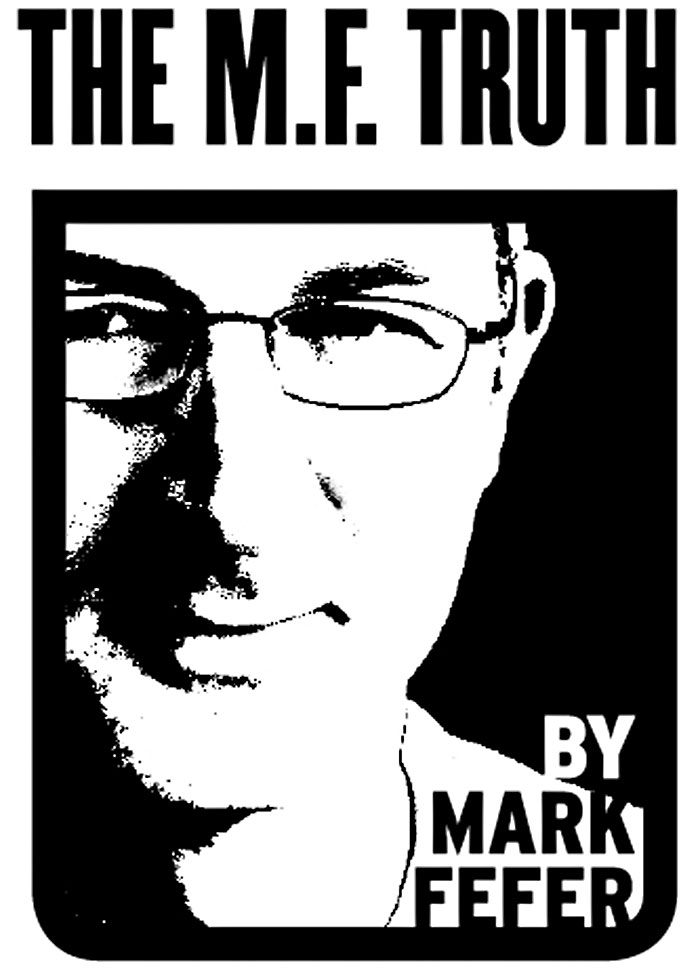My column about Obama’s inauguration and the atheist movement (“Not Praying Along With Obama”, Jan. 28) got a lot of response. E-mails about it are still coming in daily, and some correspondents have asked for follow-up or challenged me to answer in print.
Really? Readers demand that the columnist say more? Well…OK.
It’s actually been a good couple of weeks for the no-Godniks. Still excited by that “nonbelievers” shout-out in Obama’s inauguration speech, they got another respectful nod from the new president at last Thursday’s National Prayer Breakfast. Prayer Breakfasts, in my view, should go the way of smiley, deferential first ladies. But if the president is going to do it, he should be as inclusive as possible. And after eight years of contempt for science and rationalism, thank God (or thank Obama) we’ve got someone leading the country who will welcome and acknowledge people who have no interest in religion or prayer.
I needed to say that off the top because some readers seem to have mistaken me for an atheist-basher. Totally untrue. I’m a big fan of atheists. Some of my best friends are atheists. In fact, some of my best friends are religious atheists. (I’ll return to that later.) My problem is with certain atheist activists and their very un-inclusive campaign—in books, billboards, bus signs, and Olympia holiday displays—against religion. That’s where they go so wrong, and show a half-assed understanding of what religion is and can be.
This was certainly in evidence in some of the online responses to my story. Religions “make people stupid,” declared bobxxxx. (No offense, bobxxxx, and I really don’t want this to sound arrogant, but do you have any idea how many Jews have won the Nobel Prize?) “[T]he Christian religion encourages evil,” opined Mark Hughes from Seattle. (And that’s all?)
Some readers saw the piece as somehow a defense of religious “belief,” and so set about trying to tell me how ridiculous these “fairy tales” are. Which is fine, but not really my issue. More to the point are the commentators who condemn religion’s general effect on society, its blood-soaked history, and the insidious way people use a Higher Authority to justify prejudice and oppressive politics.
Religious dogma “continues to give us wars, pseudo-science, bigotry against women and gays, and dangerous presidents like George Bush,” wrote Steve Wu from Seattle.
Those are all bad things, for sure. And religious leaders have a lot to answer for because of them. But what I find odd is the apparent belief (“faith,” you might even call it) that eliminating religion would cure these problems. Where is the era or culture with no wars, pseudo-science, bigotry, or dangerous heads of state? Where’s the evidence that abandoning religion ends hate and brutality—Cambodia under the Khmer Rouge? Soviet Russia doesn’t seem to have been such a great time, either. I can “imagine no religion”—as that billboard on Denny Way suggested last summer—and it doesn’t necessarily translate to peace, love, and understanding.
Why aren’t the partisans of atheism bothering to tote up all the ways religion helps provide a more caring society? Why can’t Dr. King be Exhibit A instead of George Bush?
It seems pretty obvious that what we have is a people problem, not a religion problem. It’s people who are prone to tribalism, fear, and aggression, and their religion reflects that. Which is why—as noted last time—I don’t blame Leviticus for the persistence of gay-hating. Religious fundamentalists have abandoned all kinds of stuff from the Bible as anachronistic and irrelevant. But they hang on to the homophobia for some reason. Apparently it serves them, comforts them. They want it.
One e-mailer from Seattle called this idea “absurd.” “It is a case of which came first, and in this case it is clearly the churches who have hatched this rotten egg,” he wrote. “If you have evidence of another, more credible, source for rabid homophobia, I would be interested in what it is. People are not born to hate and fear others. Hatred ‘must be carefully taught’ to be effective.”
I don’t happen to agree. But I think we can say for certain that while homophobia extends well outside the boundaries of the church, plenty of religious communities are huge supporters of gay rights. So clearly homophobia is what we need to be overthrowing, not religion.
Ironically, the anti-religionists are just too obsessed with God. They think that if they can just harangue everyone into realizing how stupid it is to believe in God, we’ll all embrace…well, whatever it is we’re supposed to embrace instead.
But God/NoGod isn’t the only point of interest for religious people. Religion offers rituals for marking time and deepening our experience of life. It gives us a vocabulary for our aspirations. It provides connection to our ancestors and the ways they too mourned, celebrated, and struggled to make sense of the world. There are plenty of religiously involved people who do not believe in the historical reality of supernatural events and deities. But they find the tradition meaningful, a useful vehicle for passing on values and advancing social progress.
These are the people whom atheistic activists should be making common cause with. Creationist homophobes are a good whipping boy, but the atheists’ fight against ignorance will be strengthened by people who love knowledge, progress, and religion.








